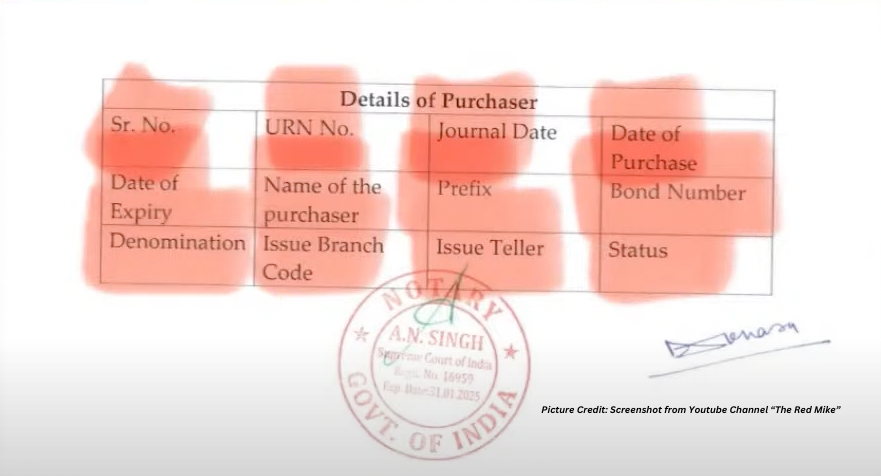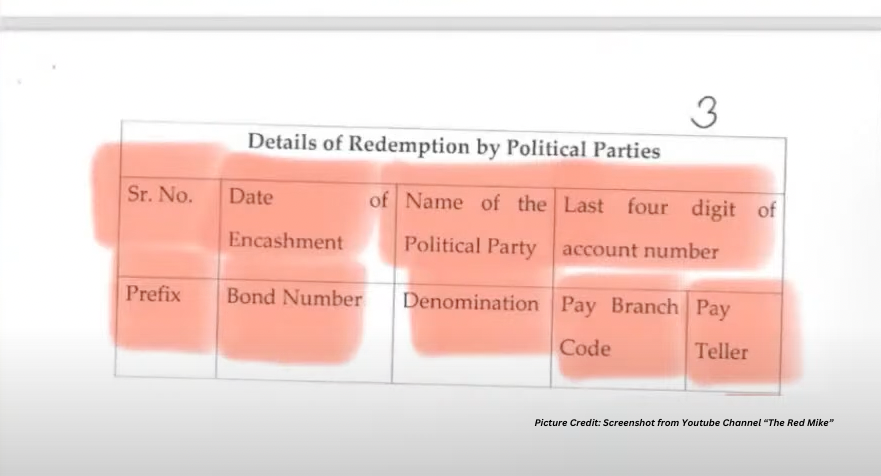In a significant development, the State Bank of India (SBI) has filed a compliance affidavit in the Supreme Court on March 21, 2024, disclosing crucial details about electoral bonds to the Election Commission of India (ECI). This move comes in response to the Supreme Court’s February 15 judgment, which struck down the electoral bond scheme as unconstitutional due to the concealment of donor details.
Background on Electoral Bonds
Electoral bonds, introduced in 2018, have been a topic of intense debate and controversy. These bonds allow donors to make contributions to political parties without revealing their identities, raising concerns about transparency and the potential for money laundering. The scheme has faced scrutiny from various quarters, including the Supreme Court and transparency advocates.
| Key Points about Electoral Bonds |
|---|
| Introduced in 2018 |
| Allows anonymous donations to political parties |
| Raised concerns about transparency and money laundering |
| Faced scrutiny from the Supreme Court and advocates |
Supreme Court’s February 15 Judgment
The Supreme Court, in its landmark judgment on February 15, 2024, struck down the electoral bond scheme as unconstitutional. The court cited the lack of transparency in donor details as the primary reason for its decision. The judgment emphasized the need for transparency in political funding to maintain the integrity of the democratic process.
SBI’s Compliance Affidavit
Following the Supreme Court’s directive, the SBI filed a compliance affidavit on March 21, 2024, disclosing the following information to the Election Commission:
| Details Disclosed by SBI |
|---|
| Purchaser details (serial number, URN number, date of purchase, name of purchaser, bond number, denomination) |
| Redemption details by political parties (date of encashment, name of party, last 4 digits of account number, bond number, denomination) |
| Unique alphanumeric numbers of the bonds |
The disclosure of the unique alphanumeric numbers is particularly significant, as it enables the matching of purchasers with the political parties that redeemed those specific bonds. However, the SBI has withheld the complete bank account numbers and KYC details of the parties and purchasers, citing security reasons and stating that they are not necessary to identify political parties.


Supreme Court’s March 18 Directive
On March 18, the Supreme Court clarified the scope of disclosure required from the SBI, stressing the importance of disclosing unique bond numbers to enable matching purchasers with redeeming parties. The court set a deadline for the SBI Chairman to file the compliance affidavit by March 21.
Implications and Next Steps
The disclosed details are expected to be uploaded on the Election Commission’s website soon, providing the public with access to this crucial information. The disclosure is likely to have significant implications for political parties and donors, potentially leading to further scrutiny and calls for reform.
Expert Opinions and Analysis
Legal experts and political commentators have weighed in on the significance of the SBI’s disclosure:
“The disclosure of electoral bond details by the SBI is a crucial step towards transparency in political funding. It will enable the public to hold political parties accountable and make informed decisions.” – Advocate Prashant Bhushan
“While the disclosure is a positive development, it is essential to note that more comprehensive reforms are needed to address the issues surrounding electoral bonds and political funding in general.” – Political analyst Yogendra Yadav
Conclusion
The SBI’s compliance affidavit, disclosing electoral bond details to the Election Commission, marks a significant milestone in the ongoing debate surrounding transparency in political funding. The Supreme Court’s judgment and subsequent directives have paved the way for greater public scrutiny and potential reforms in the future. As the disclosed information becomes available on the Election Commission’s website, it will be crucial to analyze its impact on the political landscape and work towards a more transparent and accountable system of political funding.














